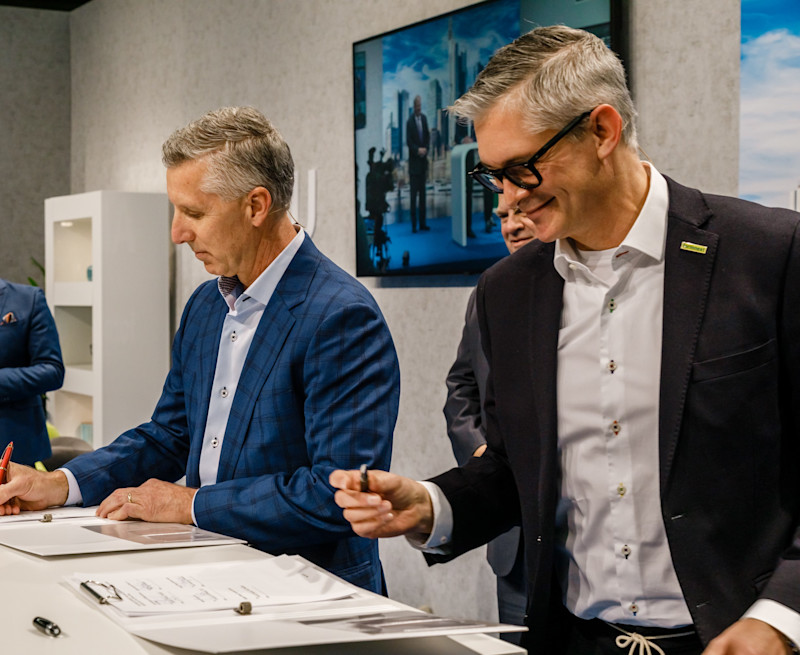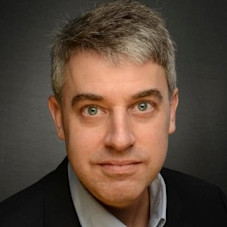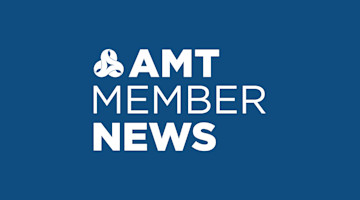Formnext is coming to the United States. That much is not new: In November 2021, Mesago Messe Frankfurt – host of the annual Formnext expo in Germany, the world’s largest trade show for additive manufacturing (AM) – announced with its U.S. partners that a U.S. version of the event, Formnext Chicago, would be held April 8-10, 2025. But when the announcement was made, that date was far in the future. Not so anymore. Early next year, the largest AM trade show will extend into the largest market for AM equipment and technology.
The show’s focus is (and has always been) part production via additive manufacturing, an option bringing new design, lead time, and supply chain possibilities to many diverse industrial sectors. For North America, the extent of the potential impact of the show as a vehicle for increased attention to AM, and the continued advance of its adoption, can be seen in a recent development affecting those interested in the show. In March 2024, the Society of Manufacturing Engineers (SME), host of Rapid + TCT, an annual expo that has showcased 3D printing technology for industrial and commercial users for three decades, announced its own dates for its show next year, to be held in Detroit. The dates it chose are, also, April 8-10.
Mesago Messe Frankfurt is the owner of Formnext. Its partners for Formnext Chicago are AMT – The Association For Manufacturing Technology and Gardner Business Media. While AMT hosts the largest manufacturing event in North America, IMTS – The International Manufacturing Technology Show, Gardner Business Media is North America’s leading media company serving business and manufacturing leaders in machining, plastics processing, and other forms of discrete part production. Doug Woods is AMT’s president, Sascha Wenzler is the vice president Formnext of Mesago Messe Frankfurt, and I work for Gardner as one of its editorial leaders, notably on its Additive Manufacturing Media team.
Woods and Wenzler recently joined me in a conversation about Formnext, the advance of additive manufacturing in the United States, and an event landscape in which (as has now come to light) competing trade shows will be held simultaneously. Here is what they had to say:
Peter Zelinski:
There are existing U.S. trade shows addressing 3D printing and industry. There is Rapid + TCT. There is IMTS. For current and future users of additive manufacturing, what is the purpose and promise of Formnext Chicago?
Doug Woods:
It is not a new event, and that’s one of the more important points to make in talking about Formnext Chicago. This is an additional location for what has become the best-known, most attended, and most important additive show in the world, Formnext.
The show had to come to the United States in order to build on its success. The U.S. is the biggest market for AM equipment and products, along with being a huge manufacturing market in general, offering an enormous opportunity to expand the market by encouraging more AM adoption.
Until now, the only U.S. trade show showcasing 3D printing technology for industry – a show that, to its credit, has run for over 30 years – is Rapid + TCT, which began as Rapid. The show started as a rapid-manufacturing show and morphed over time. It has included attention to the maker movement and 3D printing applications beyond industrial production, but it has also become a venue where manufacturing companies can find additive solutions.
Meanwhile, IMTS is the best place to find all things manufacturing technology. In the last decade, we have built out a specific pavilion or sector of the show for AM, which has been great for showing how additive technology can be part of an overall manufacturing solution.
But Formnext is bringing something different from both of these events. What we are all missing, and what we will have in the U.S. next year, is the concept that makes Formnext the most successful additive show in the world: bringing together the entire AM value chain. It’s not just 3D printing; AM as a production solution involves much more. Formnext provides a venue for everything involved in AM, from the materials providers through the additive equipment, through postprocessing solutions, through engineering, inspection, and software needs – all for discrete part producers using AM for material types ranging from metal to plastic to composites to ceramics.
This has been a winning formula for years in Germany. Which is why exhibitors kept coming to Formnext’s organizers to say, “Look, the U.S. is the market offering the most opportunity for us and our customers. Why are you not in that market?”
Peter Zelinski:
Sascha, he mentions the Formnext organizers. Please speak from that perspective: Since 2015, you and your team have developed Formnext in Germany. It has become the largest and arguably the most important AM event worldwide. Why do you now want to bring Formnext to the United States?
Sascha Wenzler:
With international Formnext-brand events, we’re following a strategy of holding locally adapted Formnext formats in relevant AM markets based on our highly successful flagship event in Frankfurt. That’s why we have a Formnext expo format in Shenzhen, China, and a Formnext Forum in Tokyo, Japan, for instance.
As Doug said, in the United States–the largest marketplace for AM – we see a huge need for a professional B2B trade fair for investment goods that focuses clearly on the whole industrial process of additive manufacturing and the needs of the various industries using this fascinating technology. With Formnext in Chicago, we and our partners can leverage AM in the United States to reach the next level of innovative manufacturing technologies. There’s huge potential among U.S. companies that still haven’t encountered or taken advantage of AM.Together with our partners AMT and Gardner Business Media, our approach is to exploit this potential just as we’ve done very successfully since founding Formnext in Frankfurt. This is the only way to expand the application of AM beyond the core of professionals into a broad range of industries and ultimately significantly increase the business contacts of our exhibitors.
Peter Zelinski:
AMT is a partner to Mesago Messe Frankfurt in hosting Formnext Chicago. (So is Gardner Business Media, my employer.) Why is supporting the U.S. expansion of Formnext the right move for AMT? How does it fit AMT’s goals and role?
Doug Woods:
Mesago Messe Frankfurt picked partners they believed could help them be successful in the U.S. market. They picked Gardner, the most prominent manufacturing media company, to make sure they’re positioned with people who understand the end markets and can help them reach the people who can benefit most from attending the event; and they picked AMT, the organization that is already running the biggest manufacturing technology show in the hemisphere, so that we can help further extend and integrate additive manufacturing in the U.S. into the broad spectrum of manufacturing interests we serve.
With regard to our aim and role: AMT’s mission is to help its members succeed with the manufacturing technology products they are marketing; to expand the use, knowledge, and application of manufacturing technology in the U.S.; and to help U.S. manufacturing succeed, both to drive the economy and to ensure our national defense.
From our perspective, IMTS does a wonderful job at all of this. However, we also see where there are newer technologies that are not being adopted and utilized as well and as fast as they could be in order to change the dynamic of U.S. manufacturing. So, when we hear of a case like this when a credible player wants to extend an advanced technology event to the United States, we would rather work with them, and help U.S. manufacturing advance, than see them operate in a niche without being aligned to existing groups and events.
In fact, this outlook is not just about advanced technology or international expansion. AMT has also partnered with SME on, for example, regional trade shows. The Formnext partnership is similar. To serve a technology and a possibility that is still moving and changing quickly, we figured if we partner with Mesago, and with Gardner, we could aid AM adoption by providing a major platform, broadly reaching manufacturers – and do so beyond IMTS, because IMTS is every two years, and these technologies are moving faster than that.
Peter Zelinski:
Sascha, what role will Mesago and Messe Frankfurt play for Formnext Chicago? How will they aid the strength of a U.S. Formnext event?
Sascha Wenzler:
Formnext is the hub for additive manufacturing, industrial 3D printing, and the next generation of intelligent manufacturing solutions. In addition to the annual highlight – the expo in Frankfurt, Germany – and the international brand events, we provide our clients worldwide with a variety of relevant updates, insights, and events around additive manufacturing as well as related technologies along the entire process chain.
Mesago, founded in 1982 and located in Stuttgart, specializes in exhibitions and conferences on various topics of technology. The company belongs to the Messe Frankfurt Group, one of the world’s leading trade fairs, congresses, and event organizers with their own exhibition grounds. With a workforce of some 2,300 people at its headquarters in Frankfurt am Main and in 28 subsidiaries, it organizes events around the world. Group sales in financial year 2023 were around $640 million. We serve our customers’ business interests efficiently within the framework of our fairs and events, locations, and services business fields. One of Messe Frankfurt’s key strengths is its powerful and closely knit global sales network, which covers around 180 countries in all regions of the world, reaching out to hundreds of thousands of B2B contacts. It’s a perfect match with AMT and Gardner Business Media to create the best possible approach in the U.S. for the AM industry.
Peter Zelinski:
SME decided to schedule Rapid + TCT 2025 on the same dates that were announced for Formnext Chicago, and that move forces everyone involved to make a choice. But in reality, everyone who had an interest in either or both of these shows to some extent was going to have to make a choice, because the events were going to land proximate to one another on the calendar. What does AMT think about the disruption introduced by bringing Formnext Chicago into a space that is characterized by long-established events?
Doug Woods:
It’s important to understand the sequence of steps. When Mesago began considering its entry into the U.S. market, when the partnership had begun but we had not yet decided on a date for a U.S. event, we went directly to SME and the Additive Manufacturing Users Group (AMUG) to look for ways to collaborate. Unfortunately, these discussions did not lead to collaboration.
I can appreciate the difficulty for an exhibitor wondering how to handle this. I can say we have tried to create a singular space that differentiates the parties and coordinates different shows. Unfortunately, we are now in a situation where there is a choice, where those who are active in this market have to weigh the options and make a calculation.
Here is the choice I see: A company seeking to advance or market AM can go with the most important AM show in the world, a show that has decided to cross the distance by bringing its formula and structure to the United States, while partnering with the best media company in this space and the association whose members represent industry for the United States and run the largest manufacturing event in the hemisphere.
Or, on the other side, there is the option to partner with what I believe to be the best-in-class organization for education and workforce development, SME. The issues around workforce make up the No. 1 challenge U.S. manufacturing faces. Responding to this is what SME does and what most of its products are about – and the attention could not be more important.
So, the question an exhibitor or attendee has to ask is: Do I continue with a 3D printing event sustained by what is, at core, a workforce development organization, or do I work with organizations that have been covering, promoting and elevating manufacturing technology for about 100 years, joined by an expert trade show organizer’s proven model now being brought to the United States?
Competition exists in every market. In a market as big as the United States, with a technology as important as additive manufacturing, there is room for more than one of any type of technology show.
Peter Zelinski:
There is also the Additive Manufacturing Users Group (AMUG) Conference. In 2025, the date of Formnext Chicago is close to that of this conference, also in Chicago. Sascha, what is your perspective on this?
Sascha Wenzler:
You’re right, and Doug already mentioned it regarding Rapid + TCT. It’s a really unfortunate situation when you look at 2025. We were the first ones to announce our date back in 2021. Now, with 2025 coming up very soon, there are three events scheduled close together, or even on the same date.
In this context, AMUG is a very different format compared to Formnext. This makes 2025 a real challenge for all the players, be they exhibitors, visitors, or organizers. However, AMUG is a conference in a hotel atmosphere where the users of AM meet and share their ideas. It’s not a traditional trade fair with a much wider reach and range that’s also designed for showing and selling machines, products, and solutions to customers.
Both formats create value for the community. In our group of partners, we’ve always been open to discussing possible ways to realize synergies with AMUG or support each other. I’m always more about looking to the future than dwelling on the past. That’s whyI’m convinced there are opportunities if everybody moves out of their comfort zone and thinks about how a full year can offer possibilities for different events and formats that benefit the industries we serve and create added value. This is where AMUG and Formnext can complement each other very well.
Peter Zelinski:
What does AM need today to continue to advance and realize its promise? How will the advance of Formnext into North America help with this?
Doug Woods:
You need to pay an equal amount of attention to every part of the process and every part of the supply base connected to it. I am talking about materials – not just different alloys and chemistry but also the different forms: powders, wires, resin, filament, and the quality measures important to all of these. And I am talking about downstream postprocessing systems, which can be a crucial bottleneck in AM. And software. And monitoring: understanding heat transfer, latency, melt pool dynamics. All of this has to develop at the same rate for additive to keep moving.
And it’s not just one process. There are so many different options in industrial 3D printing, different flavors of making parts additively, all connected to different styles of metrology for validation. Then there is the important question of how you want to get in: Do you want to invest in the process yourself, or work with a service provider who can do the AM production for you?
To find your way through these options, to get into the market and explore it in a way that will get you to your solution, you need that Formnext experience – the event that lets you step through and engage with, one by one, all the different, important elements in the AM space.
Additionally, there is confusion in this marketplace. Seemingly every day there is talk of some new acquisition, and lately there has been talk of company delisting. The AM marketplace is in a state of flux, particularly in the U.S. One of the very best responses is that a prominent, stable showcase for the AM marketplace is arriving. I would suggest the combination of AMT, Gardner, and Mesago – which, by the way, is part of Messe Frankfurt, the largest trade show organizer in the world – is in the best position to bring continuity and a lasting way forward.
Stay up to date with the latest developments, inquire about exhibiting, and register for Formnext Chicago at formnextchicago.com.






